India Uncut
Friday, January 27, 2006
Rahat Fateh Ali Khan, 2 am
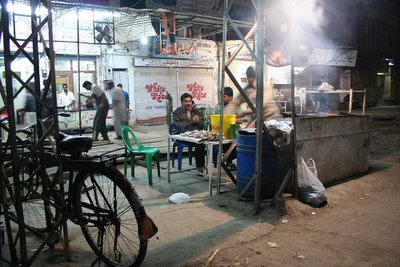
I was a little surprised at the timing of the interview, and asked him if Rahat would be awake now. "Oh yes," he remarked, as if it was a ridiculous question to ask.
"So when does he sleep?" I asked.
"Around 10 in the morning," he said. My eyes fairly goggled at this. Khushnood explained, "You see, he is busy giving live performances that generally happen all night. So he has to catch up with his sleep during the day."
We proceed towards Rahat's house, and on the way, at my request, he shows me the places where Nusrat Fateh Ali Khan, Rahat's uncle, was born and lived and gave his first performances and so on.
(I'm reproducing snippets of my long chat with Rahat below. I needed to meet him for a longer piece I'm trying to write on qawwali music in Pakistan, and I won't really structure this stuff out and write a piece and so on – blogs don't demand that formal structure.
A brief backgrounder: although Rahat is in the news in India these days for 'Jiya Dhadak Dhadak', that superb song from Kalyug, he's had a fairly good international career so far. He joined Nusrat's troupe in the mid-80s, when he was just a kid, and rose to being his main side singer in the 90s. He performed with him on quite a few of his albums, and after his death in 1997, became the main singer in the group. He sang for the soundtrack of the film Four Feathers, and his first big international solo album, Rahat, produced by Rick Rubin, was released in 2001.)
* * * * *
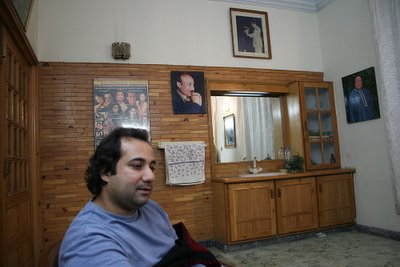
Rahat greets me in a casual and friendly way when we meet, and orders tea. We are in an outer room of his house that is full of pictures of Nusrat Fateh Ali Khan – both portraits and from performances. We start off by speaking a bit about his family and how he started learning music – as you'd expect, as a kid.
"No-one ever forced me to learn music when I was a child. In fact, I wanted to learn music, and that is why they taught me."
Born in 1973, it was in 1980, at the age of seven, that Rahat performed on stage for the first time. It was on an occasion to mark the 15th death anniversary of his grandfather, Fatel Ali Khan, and eminences like Bade Ghulam Ali Khan, an early idol of Rahat's, and Nusrat himself were present.
"So how was your performance received?" I ask.
Rahat laughs. "I was just a kid," he says, "and for a kid I was pretty good, I suppose."














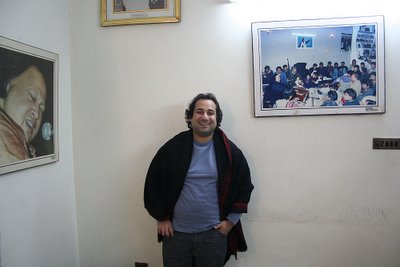
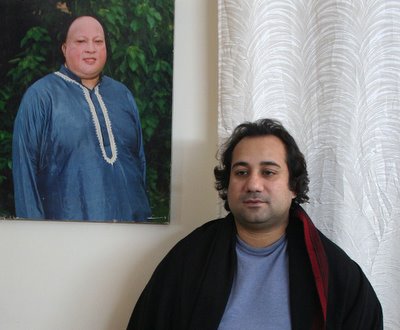
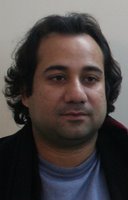
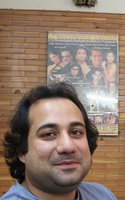

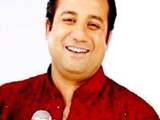

comment:
p_commentcount